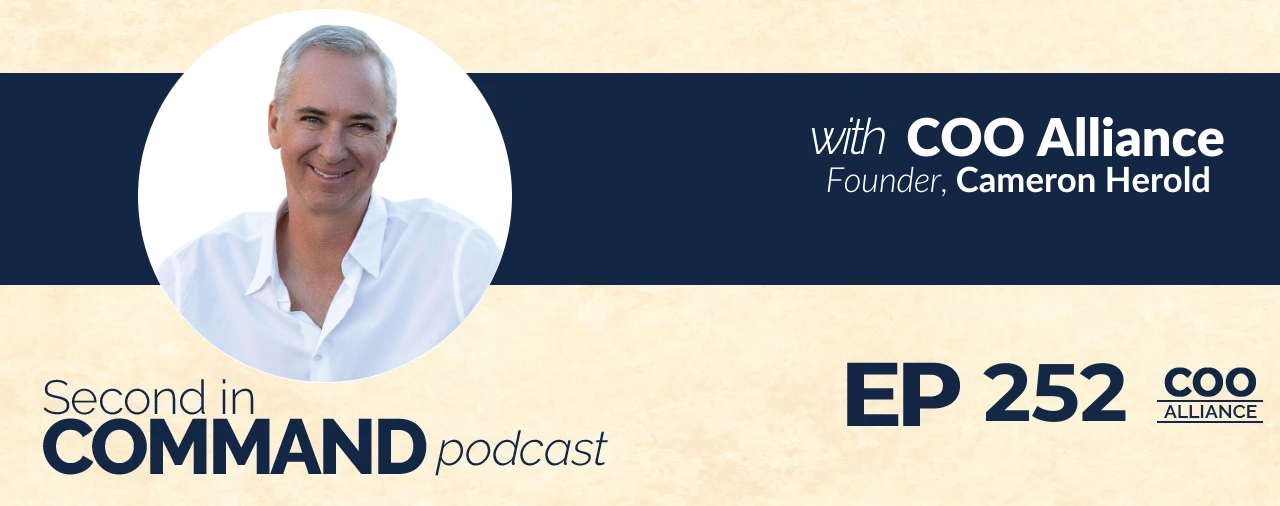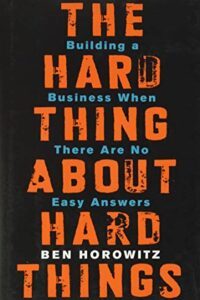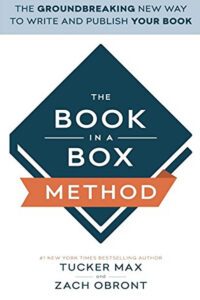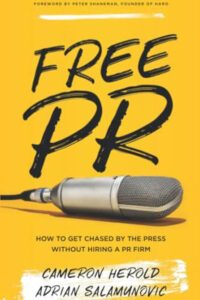Podcast: Play in new window | Download | Embed
Today’s episode features a conversation Cameron had with Christopher Ian Bennett of the Vancouver Film School Storyteller’s Studio podcast.
In this wide-ranging discussion, Christopher and Cameron discuss the importance of narrative and storytelling in the way you drive your business and the way you introduce your brand, whether personal or corporate. They discuss some of the core stories that most companies are working from, such as the traditional overcoming adversity story, outlining the struggles and mistakes the company has made and learned from on the road to success. They discuss the need for an entrepreneur’s story to be told as authentically as possible, while ensuring that it’s targeted at the right audience. Cameron also offers his thoughts on the current state of political advertising in the US and Canada, including why he thinks the advertising they’re doing is focused more on the coverage and the traffic, rather than the message.
In This Conversation We Discuss:
- The importance of narrative storytelling in the way you drive your business.
- The five core stories that most companies have.
- The importance of strategically syncing PR with marketing and sales.
- The potential for PR to be a platform for other narratives.
- Cameron’s picks for the top business books of the year.
Resources:
Connect with Cameron: Website | LinkedIn
Get Cameron’s latest book: The Second in Command – Unleash the Power of Your COO
Subscribe to our YouTube channel – Second in Command Podcast on YouTube
Get Cameron’s online course – Invest In Your Leaders
—
This is one of my favorite guests to come into the studio. I have known Cameron Herold for a very long time. Cameron is named a man of many names. He has been called the CEO Whisperer. He’s a speaker. He is an author. He’s truly a storyteller. As an author in particular, he’s got an incredible book called Free PR.
I want to talk a lot about this with Cameron and the importance of narrative and storytelling in the way you drive your business and the way you introduce your brand, whether it’s a personal brand or a corporate brand. This is something for decades Cameron has been doing. He was instrumental in building so many companies from 1-800-GOT-JUNK? and College Pro Painters to some of the biggest corporate names and clients. Some of them you can’t even talk about, and some of them you can talk about. Cameron, you are an amazing guy. Thanks for being on the show.
Thanks. I appreciate it.
How have you been?
I have been well.
I love this book. When I say I love this book, Free PR, any company or any human being who wants to understand how to tell their story needs to read this book. What prompted you to write this story? Most people assume the opposite. PR is not free. It is costly and unknown. Trying to get your story out there is a difficult thing.
This has been one I have been wanting to write for a long time. This is my fifth book, but this one had a bit of a twist to it. More than ever, crafting your brand is important regardless of what role you are in the company. We have had the advent of social media in the last couple of years. Having a personal brand and a personal story or your origin story is powerful. Free PR is more important than ever for the individual than it was for the company.
Where this book came from, was a guy named Verne Harnish. Verne was the Founder of the Entrepreneurs’ Organization. He runs a program called Gazelles and Scaling Up. He told me years ago if I wrote this book, he would put me back on a stage. I wrote four other books, and he kept going, “If you write the book, I will put you on the stage.” I’m finally like, “I will get the book done.”
You go deep in this book and you case study them. This is decades of experience having done this.
This is decades having written this book. This book first started a company called Grasshopper.com. Grasshopper.comsold for well over $150 million. The Founder, David Hauser, who was an Entrepreneurs’ Organization member, asked me if I would write the PR manual for him to bring public relations into his company. I wrote a little manual. It was about twenty pages, and he paid me to write it. That became the first chapter of my first book. That became a chapter of Double Double. Over the years, people wanted more information. I started getting even more practiced at the art of it and it became a book. It has been several years in the making.
You have got some stuff in here that is critical for a company or leaders of companies. You talk about the origin story being critical. At VFS, storytelling is foundational to all the stuff we do across every program. I say that a lot because if it’s not a good story, you are not going to watch it. Yet, so many companies don’t have a good origin story.
They have one. They don’t know how to tell it.
Do you believe every company has one?
Sure. Everyone started. Every company started somewhere. No one may have written it down. No one told the story, but every company had a founder. It’s the hero’s journey. It’s a classic story. You would know the model better than I would. It’s that classic where they struggled with something. They quit or started, and then they went through this big journey of overcoming all this adversity. Every company has that.

Narrative Storytelling: Every company has a founder and the classic hero’s journey. Everyone struggled with something, overcame challenges, and learned powerful lessons.
Vancouver Film School started. Somebody decided to start this, and they were doing something before. Every company can exist. Thomas Edison, Henry Ford, and Richard Branson, all were doing something and then they started a company. A lot of the people that we know decided to have a story. A lot of people didn’t.
When you look at the industry from a public relations perspective, the way the media responds to stories that are pitched to them every day. What’s your perspective on the modern reporter or the modern journalist? Are they lazy? Are they too busy? Do they need us to feed them these great stories? You have an interesting perspective on them in this book because, without them, we can’t close that final piece. Yet, you are still saying at the core of all these stories, you are the author. You are the company.
I almost said lazy as you were saying it, but I don’t think that’s the right word. I’d rather say they are busy. They are busy and looking for efficiency. They are looking for the path of least resistance. If we can hand them a good story, they are more apt to think about it and consider that. I always go back to grade ten creative writing class in school. I forget what the English class was called. The teacher would say, “Tell a story,” or, “Write a story. You got 30 minutes.” I’m like, “About what?” If it was, “Write a story about a keyboard or a microphone,” I could write a story. I needed something. I needed an angle of something to talk about. A lot of writers are busy. If we can give them a story, they might decide to tell that one.
How much is free PR versus do-it-yourself PR? If everyone has an origin story or everyone started somewhere, there’s that story. To create a life beyond that one story over months or years, you have to keep coming up with new ones. Can anyone do that?
I’m going to go back to the first question about the writers being lazy because there’s a second part that I missed. The media outlets might be a little lazy. Media outlets don’t have the money they used to have. They don’t have the money for investigative journalism. They can’t afford to send the reporter out to find a story. The media outlets are being squeezed to become more efficient and find stories cheaper. That might be where I always thought that the reporters were lazy. It’s probably more the media outlets are lazier.
In terms of the story or finding new stories, every company has at least 5 core stories to start with and then they have 1 story that can be played out in every single market they do business in. I will give you an example of five core stories that most companies have. You have your overcoming adversity story where you struggled and you failed. You made big mistakes. You have your founder story or your origin story and how you started. You might have a story about your culture or what your company culture is like. How you are leveraging technology could be a story.
You have a story about your customer and how your product or service changed your customer’s life. You cleaned out their home, painted their house, or did a video for them. Your work was powerful for your customers. If you can tell that story in Vancouver, you can tell that same story in Edmonton, Boston, San Francisco, or Dallas. Pick a city. As you expand your company, you can tell that same story city after city. I don’t think it’s often as much about finding the new story as it is about not getting bored with telling the same story.
It is also making sure that you identify all the different audiences that still have yet to hear that story.
That’s the other one. If you are going to tell your culture story, let’s say we are thinking about a classic business story. You have got Forbes Magazine, Fortune Magazine, Inc. Magazine, Wall Street Journal, New York Times, CNN, Money, and EO Fire. All these podcasts or bloggers have very different viewers, readers, and listeners. You have to position or spin your story for that audience, and that’s different.
Let’s take a company like Sephora, a makeup brand. We may do this one again with a different brand, but let’s say clearly, that you have got a target client, most likely women. You know who your target customer is. Do you think it’s important for the narrative or the story you are telling about your company?
Target that customer?
Yeah. What I’m trying to ask is, is it more effective and better storytelling when your origin or rather your story that you are telling through PR lines up with your customer, or is it important to be authentic and let your customer come to you?
You want to tell your story in the most authentic way, but to the people that you want to be targeting. Public relations has to sync up with your marketing and your sales. It has to sync up with all those strategically. There is no point in telling your story and targeting a completely different audience. As an example, I run an organization called the COO Alliance. I’m the only network of its kind in the world for second-in-commands in very entrepreneurial companies.

Narrative Storytelling: Public relations has to sync up with your marketing and sales strategies. There is no point telling your story and targeting a completely different audience.
It is a very specific target. You talk to number twos.
I’m going to tell my origin story. I’m going to talk about the entrepreneurial journey because I will speak to that audience. If I were targeting more of a corporate audience, I might talk about some of the soft skills like situational leadership, conflict management, meeting rhythms, or interviewing. I might talk more skill-based or training, or use some of their language. I can’t even speak in that language because it’s not my world. I tell my story and lean toward my target audience as with the rest of my marketing and my sales.
I see what you mean. Maybe a better example than Sephora would be Nike. Even though you might use LeBron or Serena and Venus Williams as your messenger, ultimately, it’s clear in Nike that they are using them but they are talking to you. You see yourself in the struggle, the triumph, or the success of those moments in sport and athleticism through those people. Nike allows you to see yourself in their communications and their marketing certainly, but even in their PR, the way they wrap themselves around Colin Kaepernick.
They want the customers to see themselves in the story. They have to speak to evoke the feeling of that person. That’s why in my origin story I talk about this entrepreneurial journey. It speaks to the entrepreneur.
Do you find that most of your clients and most of the companies you work with understand this and they can embrace it? Let’s use a movie like The Founder. Years ago, it came out.
That’s the Ray Kroc movie.
It’s the McDonald’s story. Trivia for you, Jeremy Renner or Hawkeye from the Avengers Movies is a producer on that film. That’s a little bit of trivia for you there. It had a small budget of about $10 million and went on to do about $50 million or $60 million at the box office. It was not a bad return. They were critically acclaimed. This is the story of McDonald’s.
Warts and all, you have got Michael Keaton playing Ray Kroc. There are a bunch of other little movies along the way over the last few decades, but there’s not a ton. Yet, that was a successful film. People liked it. There can be an interesting story about how a company does it. Why don’t more companies do things like that?
Partially, the entrepreneurial journey, success story, and the entrepreneurs being the hero have only been popular for a number of years. That only started in 1998. If you go back prior to 1998, “98, ’99, and 2000 was the rise of the first dot-com explosion. That’s when entrepreneurship became cool. It fell hard in 2000 and 2001. The rise up to 2008 again is when it all of a sudden became super cool. When I was growing up, being an entrepreneur was not cool at all. We were vilified. We were capitalists. We were greedy. We were profit-centric. Even my family didn’t like what we did. My other sides of our aunts and uncles stuff.
Isn’t that interesting? The archetype was a negative one.
There was no real story. There was no narrative for the entrepreneur being cool or a hero. What was the classic movie from the “40s? It was the big titan of a newspaper magnet. It was a huge movie. He builds a big castle and it’s the fall of his whole empire. I can’t come up with the name of the movie off the top of my head, but it is based on a true story.
What you are describing would not be indifferent to HBO’s Succession fast forward many years later. That story is truly captivating.
The only book that ever had the capitalist as the hero was Ayn Rand’s Atlas Shrugged. That was the only story where the capitalist was the hero. Other than that, it never existed.
As an audience, do we still distrust the corporate, the entrepreneur, or the CEO?
Yeah. Look at what’s happening. You look at all the people who are turning against Facebook, Google, and Amazon. In the last few years, there’s been this massive movement against all of these titans of capitalism. Zuckerberg was hyper-cool until a few years ago. Sergey and Larry were hyper-cool. Jeff Bezos was hyper-cool. In the last few years, they have become vilified constantly. That’s the new strange twist.
Aaron Sorkin’s The Social Network, you saw that one a few years back. There’s another example. Did that make it worse for Facebook or better? This is a perfect example of telling the story.
Some of the greed that’s been coming out in some of the stories and some of the movies has started to make people turn against it. If they talked more about the struggle. If they talked about the story of how hard it was for Jeff Bezos to get to the night before he became this overnight success or how hard Larry and Sergey have worked. They don’t tell that stuff. It’s all about how big they all are.

Narrative Storytelling: These days, stories about successful entrepreneurs focus too much on overnight success and how big they are, not how hard they worked.
Did you see Inside Bill’s Brain on Netflix?
It’s fantastic.
You and I both know that at a certain point, Bill Gates was vilified. There was an antitrust decade of Microsoft being not popular.
He was an interesting specimen on PR because he had a good PR machine that kept a lot of that stuff in the background. We never heard that he was a bit of a jerk. He was always driving around in his Porsche, speeding. I used to joke about the story when he and Paul Allen would race to SeaTac airport. They wanted to see who could leave the office with the least amount of time before their flight. Bill Gates won in 28 minutes because he drove his Porsche up, tossed his keys to a valet, and said, “Keep it, sell it, or park it.”
Is that a true story?
That’s a true story. Prior to that, Paul Allen had done it in 29 minutes and was able to do the 1-minute run to the gates. Bill Gates won by giving a guy a Porsche.
That’s an amazing story. If you haven’t seen it on Netflix, you have to watch it. It’s called Inside Bill’s Brain. It looks at Bill Gates’ day and then how he got there. To your point, the entrepreneur warts and all were compelling stuff. It lends itself to great PR and great storytelling. You are right. You would agree that no entrepreneur has not faced adversity yet.
It is everyone. If you think about it, picking any city and then picking any company that exists, all of those would have a fascinating tale. There’s an amazing story about every single entrepreneur in the city, and most of them go untold. It is mostly because the entrepreneurs are still starving for praise. At the end of the day, we are all sixteen-year-olds trapped in adult bodies.
Every entrepreneur doesn’t think they are doing good enough. They are still struggling, still trying, and still working. They don’t think they have anything to tell because they wake up in the morning still trying to figure out how to do it. They don’t even recognize that is a story. Their employees would be way more apt to drive the business if they understood the hardships and what the journey was to get us there.
One of the big success stories you have in PR in your career, and you go back many years, is there was a moment when you dreamed about, “What would it be like if we could get this company talking to Oprah?” That moment of actualization happens and you pitch to Oprah. Oprah hears the story and there we go. The simple takeaway from that is you have to dream it first. You got to want it. Sure enough, the story was compelling, and there it was. You make it seem so easy.
That’s a little easier than the actual path. It was a little bit of the conceive, believe, and achieve. I will give you a funny story as well. My story on PR goes back to 1986. My first press coverage was many years ago. Journalist Tom Hewlett added me on LinkedIn. I was like, “I know that name.”
That was in 1986. I was running College Pro Painters in Sudbury, Ontario, Canada. He covered me in the Sudbury Star. I remember getting the article and going, “This is so cool.” I showed all my potential customers, and they all thought I was so important. Meanwhile, I knew I was this guy who he’d seen me and asked if he could write a story. That showed me that PR was doable for anybody.
Fast forward to 2002, Brian, the Founder of 1-800-GOT-JUNK?, he and I were standing in the lobby at 1-800-GOT-JUNK?. We wanted to dream about what could be big for the company. I said, “How about our logo on the side of the space shuttle?” He said, “That’s insane. That could never happen.” I’m like, “Why not? We’d be up in space. We could be hauling away space junk. It could be sponsored by 1-800-GOT-JUNK?.” He was like, “That’s stupid.” I’m like, “What do you have? It’s got to be big.” We’d already said to go from 20 to 100 franchisees. We had 20 franchisees. We said, “Let’s go for 100,” which was ludicrous. He goes, “Could you imagine being on Oprah?” I’m like, “That’s as dumb as being on the space shuttle.”
Brian described the episode and what it would be like, and how we would have this woman who was a pack rat and we’d be cleaning up her home. He described the episode standing in the lobby of the junction to me, and I was shaking. I’m like, “Wow.” It was insane, but it was so vivid that I was like, “Let’s put that on the wall.” We are being featured on Oprah on the wall.
It took us about sixteen months to get it. We would call Oprah. You were either part of the PR team at the time or you were in coaching with us at the time. We would call them. We would pitch them. We would send them letters. We sent them gifts. We’d ask for introductions. We got shut down constantly. Oprah came walking in one day with the newspaper USA Today with an article about 1-800-GOT-JUNK? and said, “Have we heard of these guys? We should do a story with them.”
The whole team started laughing and saying, “Have we heard of them? They don’t stop talking to us.” We’d been pitching them for so long. USA Today learned about us from a Fortune Magazine article that Justin Martin had written. The Fortune article was from a guy who read about us in Bloomberg. We laddered up the media all the way to Oprah.
I love that story. If I were to rename the book, I would call this The Audacity to Pitch. What you described when Brian visualized it and described it to you is it’s no different than someone writing a screenplay and pitching that to an executive over and over. There are so many things that people even in the film and television industry need to understand about not just conceiving the story but hitching it.
You were with us when we had the audacity to pitch. Do you remember the day when we came up with a hit list of the top twenty PR outlets that we wanted to get? We put a bonus in place. For each one, you’d get 200. The next, you’d get 300. The next is 400. There was a team of 3 or 4 that pooled all your bonuses together. You split it up and divided and conquered. We landed 19 of the top 20 media outlets. Do you remember the only one we didn’t get? Do you remember who it was? It was David Letterman. Bud Melman was going to go do a ride-along in the truck.
We were in conversation with them.
That was the audacity to pitch. We picked up the phone and called all these people and they were willing to listen. Most people would never pick up the phone and do that story.
There’s a series on National Geographic. Sadly, it’s been canceled or they didn’t pick it up for a third season. It’s called Mars. Within the fictional story of this future group colonizing Mars, you have the story of SpaceX. You have Elon Musk weaving the real narrative of what’s happening juxtaposed with this idea in the future where it could go. It’s this beautiful narrative that makes you go, “SpaceX is incredible.”
You look at things like Undercover Boss. I’m not going to give credence to that other reality show with that other guy from many years ago where a bunch of people compete to whatever. I’m not going to give him airtime. There’s so much television where we are breaking into the work environment or the company.
Do you think that’s the future, whether it’s reality or documentaries? Even though the founder is a fictional account of a real thing that happened at McDonald’s, there is something magnificent and raw if you were to look inside a company and see it. Do you think that if you were to do a reality show about any company, there would be real drama and interest in there?
There is a lot of drama and interest there, for sure. Interestingly, you bring up SpaceX. I have known Elon since 1995. I was a reference for him in his first round of funding with Zip2 when he had one employee. It was Kimbal Musk who used to work for me and Elon Musk. They had one employee and I was a reference. We had to back them using College Pro Painters experience for their first round of funding. I don’t know if you know this story.
Kimbal called me that night and said, “I don’t know what you told Kleiner Perkins.” It was only Kleiner at the time. It wasn’t even Kleiner Perkins. He said, “We only asked for $600,000 in funding and they gave us $3 million.” I didn’t understand the internet because I didn’t have an email address back in 1995. I had to explain why to back a company that was going to be on the internet. I didn’t know what the internet was.
Elon’s ability to tell a story for what they were doing, to craft a story and explain that story to the media, is one of the core reasons he’s been successful. He did it with PayPal and SpaceX. He’s done it with Hyperloop. He has the ability to craft a story and energize people. The media will tell that story and it attracts money, people, and employees.
That’s an amazing story. I didn’t know that about Elon that you knew him.
His cousin who built Solar City worked for me in “93 as well.
He’s an archetype that a lot of CEOs or business leaders should look at. In that vein, he’s had some negative stuff. I don’t think by choice, although he does project a, “I don’t care to it.” Do you think that PR has to be good for it to be effective? Most companies don’t want you to see where the mistakes have been. There can be some success in trying to tell your story if you are not afraid to be revelatory about everything happening in your company but we hold back. We only want to tell the success. We only want to say when we overcame. The failures and the mistakes, are they less impressive to the media? Is there such a thing as bad PR?
I don’t think there is bad PR, but you are going to get it, so you may as well work around it. Some of Elon’s bad PR was self-made. I sent a text message to his brother, Kimbal, right after the Joe Rogan podcast went live. I said, “You need to pull him off the grid. He’s losing it right now. He’s tired. He’s exhausted. He’s saying he’s sad.” He’s been pulled out of the media for the last couple of months.

Narrative Storytelling: Entrepreneurs will always encounter bad PR. They must learn how to work around it.
What happened was he was on tilt. He was sleeping in a tent in the parking lot. He was on the roof in one building and a tent in the parking lot in another. He wasn’t getting any sleep. He was living on friends’ couches. This was not long ago. He was on a bit of the lunatic fringe. You need to pull people out. He was making mistakes and was saying things that he shouldn’t have said. It is the same thing with Chip Wilson of Lululemon. He is an amazing person. I know him well. He’s a nice guy
He hit some speed bumps.
He said stuff. Most entrepreneurs think that they can think out loud and say what they feel, but at some point, you get to be so big that maybe you can’t. Maybe we need to cut them a little bit of slack, too. They are humans.
What about WeWork? This one is the biggest story of an example of a company that had an extraordinary valuation. We both know the guy who’s coming to help save them. I wouldn’t say turn them around, but save them and stop the bleeding, which you and I both know he’s very good at. At the same time, because of this, there’s a whole group of people who have been exposed to WeWork who had not been to their narrative or their story. For a public company, that can be a good thing.
There are a lot of people that are hearing about it. Outside of the dot-com or the tech community, a lot of people didn’t know who WeWork was. They have gotten a ton of free press over that, for sure.
What I’m getting at is there could be a vein of PR that any company could go to after something rough has happened, something negative, or whatever it is.
They are telling that story.
If they are saying, “We are prepared to let you in and walk you through how it happened and what we have learned from it,” there’d be a ton of press that would go, “We would love to do that.”
I do it personally all the time because I have chosen to not give a damn anymore. The only time I have been pulled back a little bit is when my dad said, “There are a couple of things you have said that US customs might not love.” I’m like, “Good point.” I don’t have to necessarily talk about everything, but I will talk about my fears, my insecurities, my vulnerabilities, a painful divorce that I went through, and my struggles with business stuff because it’s real. All of a sudden, people go, “You are a human.” I’m like, “Yeah. I struggle, too.”
You have got a show. I want to mention that, too. It’s got a very specific lean to it. How do you keep it interesting in the stories you are telling and the interviews you are doing? How do you approach that?
My show is called The Second In Command. I only interviewed the second-in-command. Everyone’s interviewing the CEO. I want the rest of the story. An example would be if we had a traditional family, a husband and wife raising kids. If I were to call your mom and say, “How did you raise the five kids?” Your mom would have a very true story. If I called your dad and said, “How did you raise the kids?” He would have a very true story. They are both married. They are still together. They would have different true stories. It’s both valid. No one is getting the rest of the story. The show is to get the rest of the story. We have all heard from Brian at 1-800-GOT-JUNK? the story of how he built 1-800-GOT-JUNK?. What about my story when I was COO or Erik Church’s story, the COO? That’s what I’m doing. It’s going after all of those second-in-commands.
Another vein there could be is, is there a real avenue of PR possibility and potential for a company to not necessarily tell their narrative but be a platform for other narratives? What you have done well in creating your brand and your COO Alliance is by being a platform for other number twos effectively. That was smart.
There is a platform for some companies to go like reality TV but to show the employees as well. That’s not the VPs and C-level, but what about the payroll clerk story? What about the mailroom story? There was a fascinating book many years ago. It is called The Nudist on the Late Shift. It was a look at all of the different roles that were played in a technology company. They were true stories.
I got to tell the story. The nudist on the late shift was a programmer. He was a coder. He would sit and code. Every day at 7:00, with nobody else in the office except for a couple of guys, he would strip naked and continue to code butt naked. One day, he was tired and hadn’t had enough caffeine. He looked at his clock and it said 17:00 hours. He’s like, “I will go get a quick coffee.”
He strips naked and walks to the lunchroom to get a coffee. He realizes as he gets there that the women are still there at that 17:00 is only 5:00 PM. The nudist on the late shift is this guy. That’s a true story. It’d be an interesting story to look at companies as a platform for all these other stories to see how companies grow, how they succeed, how they work together, and how they get through all these problems. What about all the politics?
You are a voracious reader. I know you are. It’s the end of 2022. Do you have business books, leadership books, or anything that is on your nightstand you recommend to anyone? If you had to pick your top couple of the year, which books do you like?
There are two that I have been telling everyone to read. The first one is Ben Horowitz’s The Hard Thing About Hard Things. It is an insanely good look at the war of business. It is getting into hard situations, like firing people and what mistakes you made when you had to fire them. It’s a powerful, introspective leadership book.
The second one is Insanely Simple. It’s a good glimpse at Steve Jobs and Apple and how they were able to keep everything so simple right down to their naming conventions, the choice of wording, and how everything worked. You look at every other form of technology and it’s confusing. Apple, across the board, is insanely simple.
You have written many of them. You know the ones of the companies that are compelling and are great stories are usually because they are successful companies. Can a startup write a book? To your point, you said every company has an entrepreneurial startup or a founding. Yet, do you need time to go by before a book is an interesting way to tell the story?
I’m on the board and an advisor to a company called Scribe. They help businesses and owners tell stories. They help them write books. Scribe used to be called Book in a Box. The founder is a guy named Tucker Max. He is one of 1 of 3 or 4 people that had 3 simultaneous New York Times bestsellers.
How long have they been around?
3 or 4 years.
Do they have a book or several?
They have helped about 500 or 600 authors write their books. Three of my books were published by Scribe.
Did they have a book about them?
They do. It’s called The Book In A Box. Tucker wrote it. Every CEO has their story. They either have their struggles or their leadership lessons on how they built their culture. It depends on who they want to provide it to. Sometimes, it’s great for their customers to read. Sometimes, it’s good for their suppliers to understand. Sometimes, it’s a rallying cry for employees. Sometimes, it’s also something they need to get out of. You have got volumes of books inside of yours.
VFS, our founder James Griffin.
I’m talking about Christopher Bennett’s stories.
I don’t think so, but I have been witness to some fascinating stuff. You are right. Sometimes, opening up the journal is letting people in. That’s a part of that. You talk about this in the book, too. There’s an authenticity there. There’s no crap in this, which I like. It’s not a catchphrase of it’s free. There’s a way of making reporters want more. There’s a way of enticing them by opening up the kimono and showing them that good stuff that people would take a lot from.
When I left 1-800-GOD-JUNK? many years ago, Facebook was starting when I left the company. We didn’t have Facebook, LinkedIn, or Twitter as a place to amplify the stories. I call it the digital trifecta. The trifecta is your earned media. That’s all the press coverage that you generate for your company. That’s your earned media. Your owned media is your website, your Instagram channel, your Facebook channel, LinkedIn channel, Twitter channel, or Reddit feeds. You can take the press coverage you have got and put it on those pages and channels. You can link it to your website. You can have it on your press page.
The third part of the trifecta is your paid media. That’s when you can buy traffic to those stories that are on your Facebook pages. When we were on Oprah, we couldn’t even tell anybody. Imagine if we could have taken the Oprah episode, put it on Facebook, and then bought thousands of dollars of traffic for it. It’s crazy. That’s the power of PR. It isn’t just getting the story. It is having it tied to your SEO and all of your Facebook profiles and then amplifying it by driving traffic to it.
Does it matter where you tell your story? If you tell your story effectively on Facebook to a large audience, does it matter if the New York Times ever picks it up?
It depends on who you want to see it. I believe in laddering up the media. The more media coverage you get, the more that you will get. It depends on where your target audience is. You can also get coverage from the Vancouver Sun or the Chicago Tribune, and then you can drive everybody in New York. You can buy everybody in New York’s traffic towards it if you want people in New York to see it. That’s the power of those platforms.
Many great films that have come out have been optioned from stories written in Vanity Fair or New York Times investigative pieces, or Boston Globe. We see that there’s a direct correlation between someone pitching this thing, taking that to the reporter, and that reporter giving life to that story. A whole bunch of great things can happen. You get into that, which I love. I have a couple of other questions. Do you think that social media is ultimately a platform to tell your stories or do you think it’s a platform for your audience to retell your stories more effectively? Is that a myth that can happen effectively?
It’s both. If you can tell your story there, that’s one thing. If you can amplify it by getting your audience and your friends to tell it, share it, and comment on it, that’s where the amplification comes from. That’s where you start putting gas on the fire.
There’s an art to that.
That’s where people like you are brilliant. You can take the rough and dirty message that the entrepreneurs or companies have and you craft it in a way that it inspires. I don’t know how to do that.
I had Frank Palmer in here a while ago. We were talking about why political commercials suck when you compare them to traditional TV ads, which there’s good and bad. Why do political ads within the US or Canada always seem a tier behind? Do you agree with that?
Yeah. They are terrible.
There’s never been a more important group. They are not that different from a company or a business leader. Why have politicians of all people failed to understand storytelling and master their narrative?
My guess is that the advertising they are doing largely doesn’t matter. It’s about the coverage and stories that they get. It’s about whether they can create other coverage or other soundbites. We don’t believe the ads. That’s the thing about advertising. We don’t believe any of the ads we see. If they can get a story about something they have said and then they can drive traffic towards that story, or if they can create a story and then drive traffic. That’s where Cambridge Analytica, the whole story, was amazing. I talked to Carole at the main TED conference in 2021 about how the manipulation of media is happening.
With fake news, is that going to go away when the White House occupant goes away or is that going to kill the idea of free PR? We have this whole other thing that we hadn’t considered before, which is, is the story even true?
This has changed, which is sad. Scott Adams wrote a book called Win Bigly. It’s about the all-around lying that Trump is doing.
Malcolm Gladwell is about the same thing.
It is scary that we are almost giving the okay to make things up and then that becomes true. That scares the hell out of me.
It’s a fascinating time. I love this book. I strongly recommend anyone who loves storytelling and media and wants to do this better pick it up. where can they get it? Amazon? Can they go to your website?
Amazon, Audible, iTunes, and my main website, CameronHerold.com as well.
Are you a reader of Audible?
I’m not on this one.
Who did you get for it?
I will come into the studio and do it here properly. I picked a good voice and they did a good job of it. I looked into it and it was two days of my time. I don’t feel like I have the time.
The book is called Free PR. Cameron Herold is the author. You are so great at what you do. You are a storyteller. You are an amazing guy at that and an expert on it. I appreciate you doing the show.
Thank you very much.
Will you come back another time and talk to us?
I’d love to.
Cameron Herold, author of Free PR, thanks for coming in.
Thanks.








